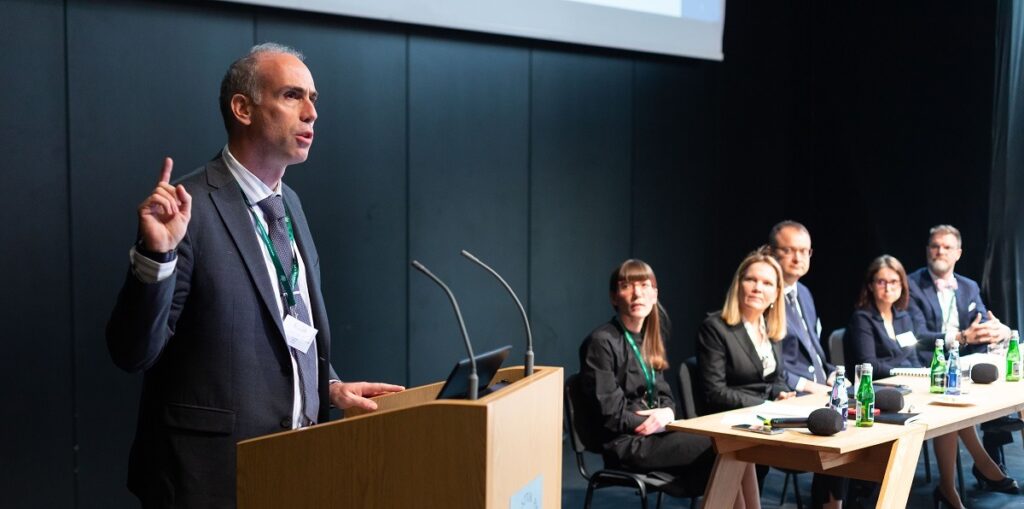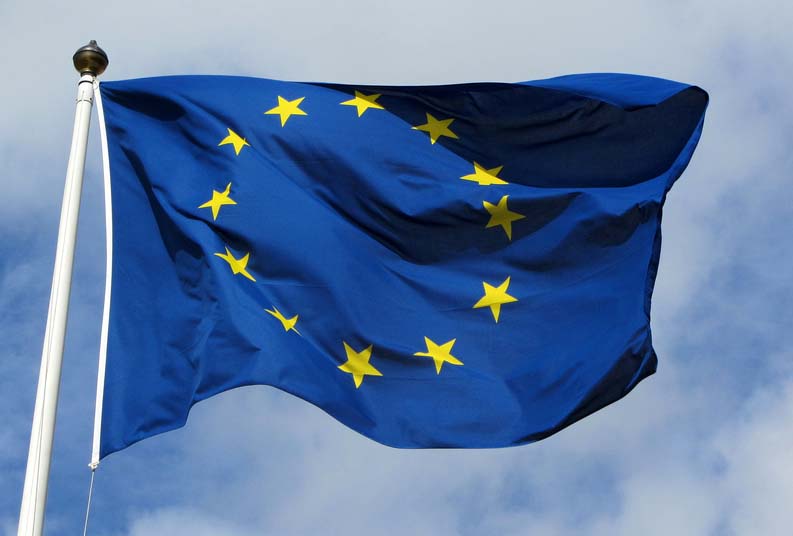By Alexis Anagnostakis
Abstract
The International Criminal Court’s unprecedented issuance of arrest warrants against Israeli Prime Minister Benjamin Netanyahu and former Defense Minister Yoav Gallant in November 2024 represents a historic breakthrough for victims’ rights and international accountability. For the first time in the ICC’s history, the Court has asserted jurisdiction over leaders of a Western-backed democratic state, sending a powerful message that no one is above the law. This article examines the transformative implications of these cases for Palestinian victims, the broader victims’ rights movement, and the evolution of international criminal justice toward genuine equality before the law.
Introduction
On November 21, 2024, the ICC issued arrest warrants for Israeli Prime Minister Benjamin Netanyahu and former Defence Minister Yoav Gallant, alleging responsibility for the war crime of using starvation as a method of warfare and crimes against humanity, including murder, persecution and other inhumane acts during Israel Defence Forces’ operations in Gaza following the Hamas attacks on October 7, 2023. This landmark moment represents far more than a legal proceeding—it embodies hope for countless Palestinian victims who have long sought accountability through international law.
As the Palestinian Authority noted, the decision represents “a restoration of hope in international law and justice.” After decades of impunity, the ICC’s action demonstrates that international criminal law can serve as a genuine instrument of justice for victims regardless of the political power or international backing of alleged perpetrators.
Historical Context: Breaking the Cycle of Impunity
The Long Road to Accountability
Palestinian victims have endured a decades-long struggle for recognition and justice through international legal mechanisms. Palestine’s accession to the Rome Statute in 2014 followed “years of civil society advocacy and hope for accountability in one of the world’s most protected conflicts.” This patient legal strategy has finally borne fruit with the ICC’s willingness to act despite intense political pressure.
The significance cannot be overstated: this represents “the first instance of the ICC issuing an arrest warrant against the leader of a Western-backed democratic country for war crimes.” For victims who have watched powerful states escape accountability while weaker nations face prosecution, this development signals a fundamental shift toward equal justice under international law.
Overcoming Structural Inequalities
The MENA region is “the most underrepresented region at the International Criminal Court” with only three member states out of nineteen. This underrepresentation has historically disadvantaged victims from the region, creating a perception that international criminal justice serves primarily African victims while overlooking crimes in other regions. The ICC’s action in the Palestinian situation challenges this geographic imbalance and demonstrates the Court’s commitment to universal jurisdiction.
Victims’ Rights Vindicated: Legal and Symbolic Victories
Recognition of Systematic Crimes
The charges against Netanyahu and Gallant specifically address “the war crime of using starvation as a method of warfare and crimes against humanity, including murder, persecution and other inhumane acts”—allegations that directly reflect the lived experiences of Palestinian victims in Gaza. This legal recognition validates victims’ testimonies and acknowledges the systematic nature of their suffering.
The ICC’s investigation encompasses not only immediate physical harm but also the deliberate targeting of civilian infrastructure and basic necessities. For victims who have endured siege conditions, this represents a profound legal acknowledgment of their experiences and the intentional nature of policies affecting civilian populations.
Challenging Narratives of Exceptional Immunity
For decades, Palestinian victims have confronted claims that certain states operate under different legal and moral standards due to their democratic nature or security circumstances. The ICC’s action definitively rejects such exceptionalism, establishing that “the 125 ICC member states” are obligated “to arrest Netanyahu and Gallant if they enter their territories”—the same enforcement mechanism applied to all ICC defendants regardless of their state’s political system.
This development is particularly significant given that the United States has imposed sanctions on the ICC, declaring these investigations “baseless” and claiming that “neither country is party to the Rome Statute or a member of the ICC” and that “both nations are thriving democracies with militaries that strictly adhere to the laws of war.” The ICC’s persistence despite such pressure demonstrates institutional courage in defending victims’ rights.
Confronting Power: Victims’ Rights Versus State Resistance
Sanctions as Intimidation
President Trump’s declaration of “a national emergency” and imposition of sanctions targeting ICC officials represents an attempt to intimidate the international justice system. For victims’ advocates, these sanctions reveal the lengths to which powerful states will go to avoid accountability, validating long-standing concerns about selective justice.
The impact has been severe, with “around half a dozen staff members leaving to avoid sanctions,” demonstrating how political pressure can undermine institutional capacity to serve victims. However, the ICC’s continued proceedings despite these obstacles sends a powerful message about the irreversible momentum toward accountability.
International Support for Victims
Despite pressure from powerful allies, international support for the ICC’s action has been significant. Some European Union countries “said last year they would meet their ICC commitments” regarding enforcement of arrest warrants, while civil society organizations worldwide have praised the development as essential for international justice.
The contrast between political opposition and legal obligation highlights a crucial tension: while some governments may resist politically, the legal framework binding ICC member states creates concrete obligations to serve victims through enforcement of arrest warrants.
Practical Implications for Victims and Their Representatives
Access to Justice and Participation
The ICC’s proceedings offer Palestinian victims unprecedented opportunities for meaningful participation in international criminal proceedings. The Court’s victim participation procedures allow victims to present their views and concerns directly to judges, ensuring their voices are heard beyond traditional witness testimony.
Victims’ legal representatives can now argue that these cases establish crucial precedents for:
- Recognition of siege warfare as a crime: The starvation charges acknowledge systematic policies affecting entire civilian populations
- Accountability for command responsibility: Charges against senior political and military leaders emphasize responsibility at the highest levels
- Protection of civilian infrastructure: Recognition that targeting essential services constitutes crimes against humanity
Reparations and Symbolic Justice
Should the proceedings result in convictions, victims would be eligible for reparations through the ICC’s Trust Fund for Victims. More immediately, the proceedings themselves provide symbolic recognition of victims’ suffering and the legitimacy of their claims for justice.
The termination of proceedings against Hamas leader Mohammed Deif following confirmation of his death demonstrates the ICC’s commitment to investigating all parties to the conflict, reinforcing that justice efforts encompass all alleged perpetrators regardless of affiliation.
Overcoming Jurisdictional Challenges: Victims’ Perspective
Palestine’s Legal Strategy Vindicated
Palestine’s 2014 accession to the Rome Statute was “hailed by the international community as a strong message and show of leadership in the fight against impunity in North Africa.” The current proceedings vindicate this legal strategy, demonstrating that patient institutional engagement can yield concrete results for victims.
The jurisdictional disputes raised by defense counsel actually highlight the strength of victims’ legal position. Palestine’s statehood and ICC membership provide clear legal foundations for the Court’s jurisdiction, while complementarity challenges fail because domestic Israeli proceedings have not addressed the specific allegations now before the ICC.
Territorial Jurisdiction and Victim Protection
The ICC’s assertion of territorial jurisdiction over Palestinian territories provides crucial protection for victims regardless of their location. This principle ensures that victims in Gaza, the West Bank, and East Jerusalem all fall within the Court’s protective mandate, creating comprehensive coverage for Palestinian civilians.
Broader Implications for International Victims’ Rights
Precedent for Accountability
These cases establish vital precedents for victims worldwide facing state-sponsored violence. The ICC’s willingness to proceed against powerful democratic states demonstrates that international criminal law can serve as a genuine constraint on state behavior, not merely a tool for addressing crimes in failed states.
Institutional Courage and Independence
The ICC’s persistence despite sanctions and political pressure demonstrates institutional courage that benefits all victims who rely on international justice mechanisms. This independence is essential for the Court’s credibility and its ability to serve victims regardless of their nationality or the political connections of alleged perpetrators.
Regional Impact in MENA
The ICC’s engagement with Middle Eastern situations—”from direct involvement in Libya to potential involvement in Israel and the Occupied Palestinian Territory, from crimes committed in Syria, Yemen and Bahrain”—signals growing attention to victims’ rights in a region historically underserved by international criminal justice.
Challenges and Opportunities for Victims’ Advocacy
Protecting Witnesses and Survivors
The ongoing nature of the conflict creates serious challenges for victim and witness protection. Advocates must work to ensure that Palestinians who cooperate with ICC proceedings receive adequate protection from retaliation while maintaining their ability to participate meaningfully in the legal process.
Countering Disinformation
Victims’ advocates face coordinated efforts to delegitimize ICC proceedings through claims of bias, antisemitism, or political motivation. These efforts, including Israeli government claims that the warrants are “antisemitic,” require systematic refutation through legal argument and factual evidence.
Building Broader Coalitions
The cases provide opportunities to build broader international coalitions supporting victims’ rights and international accountability. Support from international law scholars who “assert that state parties to the Rome Statute are legally obliged to enforce the arrest warrants” demonstrates growing professional consensus behind victims’ rights.
Technical Challenges in Victim Representation
Evidence Preservation in Active Conflict
Representing victims in ongoing conflicts requires immediate action to preserve evidence and document continuing crimes. The dynamic nature of the Gaza situation means that evidence of alleged crimes continues to accumulate even as proceedings advance.
Coordinating Multiple Victim Groups
Palestinian victims encompass diverse communities with varying experiences and needs. Effective representation requires coordination among victims in Gaza, the West Bank, East Jerusalem, and Palestinian refugees elsewhere, ensuring all voices are heard in ICC proceedings.
Language and Cultural Barriers
The ICC’s limited engagement with Arabic-speaking communities historically has created barriers for MENA victims. The Court “needs to be active in establishing a strong outreach presence in the MENA region” and “Arabic included as a language of communication on the ICC website.”
The Path Forward: Sustaining Momentum for Justice
International Enforcement
The practical effectiveness of arrest warrants depends on sustained international commitment to enforcement. Netanyahu’s recent need to avoid “flying over certain European countries that might enforce the International Criminal Court arrest warrant” demonstrates that legal obligations create real constraints on impunity.
Institutional Support
The ICC’s ability to resist political pressure while maintaining operational capacity remains crucial for serving victims. The departure of staff due to sanctions concerns threatens the Court’s ability to function effectively on behalf of all victims.
Long-term Accountability
Beyond immediate criminal proceedings, these cases establish frameworks for ongoing accountability that can deter future crimes against Palestinian civilians and provide models for victims in other conflicts worldwide.
Conclusion
The ICC’s arrest warrants against Israeli officials represent a watershed moment for Palestinian victims and international victims’ rights more broadly. After decades of seeking accountability through international law, Palestinian victims have achieved unprecedented recognition of their suffering and legal validation of their claims for justice.
This “landmark development” demonstrates that international criminal law can serve as a genuine instrument of justice regardless of political power or international backing. The proceedings challenge fundamental assumptions about immunity and exceptionalism while establishing crucial precedents for victims worldwide.
The path ahead requires sustained commitment from the international community to support ICC independence, enforce legal obligations, and protect victims who seek justice through international mechanisms. The courage demonstrated by ICC officials in proceeding despite intense political pressure must be matched by broader institutional and civil society support for victims’ rights.
For Palestinian victims, these proceedings represent more than legal vindication—they embody hope that international law can serve as a genuine instrument of justice and protection. The success or failure of these cases will influence not only Palestinian aspirations for accountability but also the future credibility of international criminal justice for victims worldwide.
As proceedings advance, the international community faces a fundamental choice: whether to support an independent international justice system that serves all victims equally, or to acquiesce to a system of selective accountability that privileges power over law. The stakes extend far beyond any individual case to the core principles upon which international criminal justice is founded.
The Palestinian people have waited generations for this moment of recognition and hope for accountability. The ICC’s action validates their patience, persistence, and faith in international law. Now the global community must demonstrate whether that faith is justified through sustained support for genuine international justice.
This article analyzes ongoing legal proceedings from a victims’ rights perspective. The views expressed reflect advocacy for international accountability and do not constitute legal advice.







